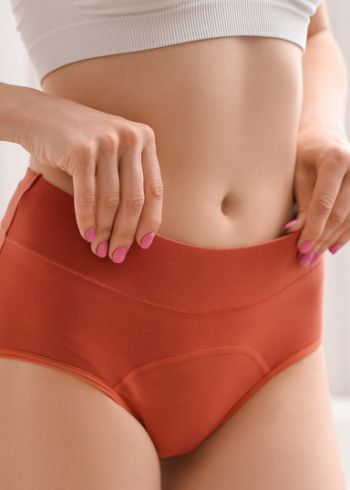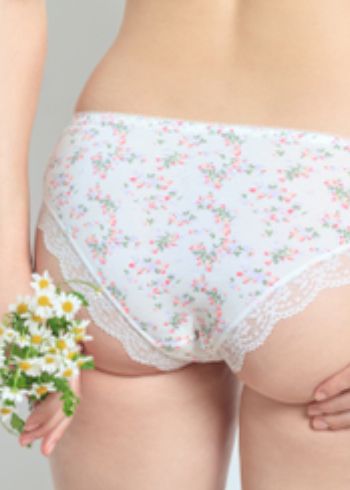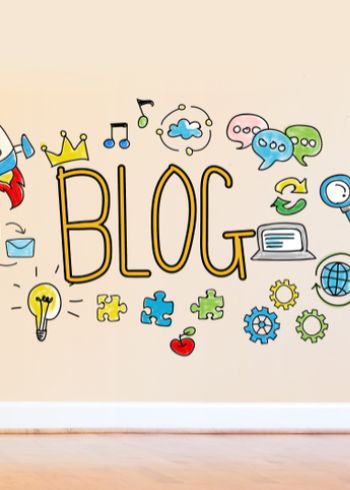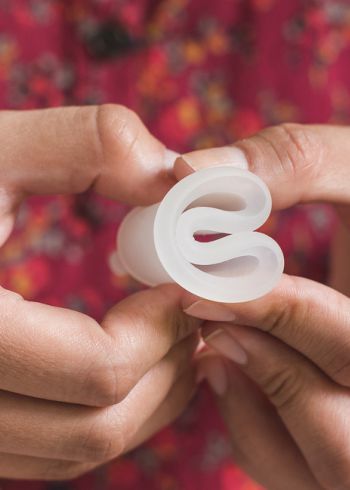Women around the globe occupy 49.6% of the total population compared to men. It is equivalent to half of the total population. Out of which a major chunk of it constitutes 26% of the global population that falls under the reproductive age and thus, experiences periods every month.Our company was founded with the mission to help create a world where menstruation is acceptable as normal and not a taboo that is life-limiting. The mission of Mild Cares is to empower women and lift individuals out of period poverty and have a carefree life without any boundaries.Educating women about menstrual health and providing them with resources to reduce stigma should be the primary aim. The aim should be to establish menstrual equity as a societal protocol. Mild Cares is working towards the bigger picture and bringing about a revolutionary change in order to make menstrual equity possible. Through our product ending period poverty by accessing menstrual care products is what we focus on.We really want to contribute to overcoming Menstrual poverty in India in the menstrual movement!Together we strive to influence and make a difference with Gynocup Menstrual Cup- A Game Changer!
- On average, during their lifetime women experience #periods for about 7 years.
- Many girls do not comprehend menstruation as a normal biological process at the time when they experience it for the first time and this constitutes almost 50% of the girls.
- Poor menstrual hygiene is the major cause of health risks that are linked to reproductive and urinary tract infections. With the usage of menstrual materials it is reduced to a considerable amount.
- To manage their periods In times of emergency like natural disasters and conflicts, many women and girls do not have access to hygiene materials.
- At a global level around 2.3 billion people do not have basic sanitation services. In the backward countries, only 27 per cent of the population come to terms with the facility of washing hands with water and soap at home. Therefore when it comes to managing periods it comes across as a big challenge.
- About half of the schools lack the basic facility of drinking water, sanitation and hygiene in backward countries. This leads to several challenges in managing the periods for students and the teachers to the extent that the students even miss their schools.
- Due to menstruation one out of five girls drops out of school in India.
- For the last 75 years no crucial change or innovation has taken place when it comes to periods.
Looking at the need of the hour we believe in bringing about the much-required change. The hygiene products with harmful chemicals can be a cause of major health issues like infections or diseases during #Periods. It should not add up to more waste in the environment and deteriorate it by causing pollution. We strive to build a better place for girls and women where there is no humiliation and shame when it comes to #Periods. We want to bring about a sea change around the globe and make it a safe place, not surrounded by stumbling blocks in thoughts that are due to menstruation in society. We believe access to safe and hygienic period products is a basic human right. This is how the world should move ahead.
Burdening the EnvironmentOur environment has been bearing the burden of waste for a long time and we are adding a little more to it with the usage of hygiene products. Approximately 16,800 disposable hygiene products are used by an individual during their lifetime. If we look at the bigger picture then, the tampons, sanitary napkins, panty liners, packaging, and wrapping contribute to nearly 200,000 tons of waste and the major portion contains plastic. They end up in sewage, oceans, beaches, and landfills making them dirty and filled with chemicals that take almost 500 years to get degraded.How harmful they can be!They can be really hazardous to the environment because the lifecycle and the packaging of these hygiene products can take almost 500 years to get degraded and thus can be really damaging. What makes it even a bigger cause of worry is the fact that they contain harmful toxic chemicals. Most pads contain polyethylene plastic that makes the pad stick to your innerwear and is actually an adhesive. During the production of the cotton that is used in the making of pads and tampons, is sprayed with insecticides and pesticides. To add to the woes they contain harmful chemicals like dioxin, chlorine, and rayon that get absorbed by the earth, and cause pollution in the water and air.There are many non-biodegradable materials used in a pad like the feel-dry plastic on the top layer and as the back sheet.
45 billion pads are thrown away in landfills alone in the USA and Canada!!!
A female throws away about 125 to 150 kg of sanitary products during her lifetime!!!
What would your preference be 528 tampons or 1 Cup?Will you keep your contribution to 30 grams or add to 3 kilos of waste? Unlike disposable hygiene products, Gynocup is a reusable menstrual cup that can persist for a longer time. They can be used for 5 to 8 years consecutively with proper care and cause a minimal negative impact on the environment compared to tampons and pads. This not only saves the environment but also costs us less!The MaterialDuring its production stage cotton is sprayed with insecticides and pesticides that are used in pads and tampons. The adhesive that makes the pads stick is polyethylene plastic and can prove to be really harmful. Dioxin, chlorine, and rayon are also used in pads and tampons that are not only harmful to the environment but can take a toll on your health as well.100% medical-grade SiliconeSilicone is safe. Why? Silicone is made from quartz, which is a type of sand. The best part about it is the second most abundant mineral that is found in the crust of the Earth. As it is naturally available, it is less likely to get exhausted and does not cause any harm to the environment and health.
50% of women in India still use cloth during #Periods
6% of women In India do not have access to any menstrual products, including cloth
Health is WealthAs females use nearly 16,800 hygiene products during their lifetime thus, using pads and tampons can really prove to be hazardous for their health. Moreover, the cellulose used in pads can be the cause of cervical cancer among women.In addition to that, the chemicals present in the pads can be the cause of many fatal diseases and infections. Dioxin can cause abnormal tissue growth in the reproductive system.To make your pads smell good, deodorants are used which is again a cause of concern as it can cause infertility and birth defects in women. The pesticides and herbicides sprayed during the production of cotton can enter the bloodstream and make people suffer from diseases like cancer.Phthalates add a smooth finish to tampons and can cause of damaging multiple organs. On the other hand, if you are using the pads and tampons for more than 4 hours it can cause Toxic Shock Syndrome which can prove to be fatal in many cases.Sanitary napkins are also made up of synthetic material that is the cause of the growth of yeast and bacteria as it blocks wetness and temperature.Menstrual cups are safe and do not carry with them the risk of getting ill or catching diseases and infection because it is made up of 100% medical-grade silicone that is absolutely safe.
Among women Cervical Cancer is the second leading cause of deaths related to cancer.
About 72,000 women in India alone lose their life due to cervical cancer every year.
India accounts for 27% of the world’s cervical cancer death that is almost twice, globally.
THE IMPACT ON CULTURE
THE TABOOS THAT ENCOMPASS #PERIODS ARE MAKING LIFE DUBIOUS AND TOUGH!
#Periods, a natural biological process is still treated with disgust, shame, and taboo across the world. Even in the 21st century girls feel ashamed to ask about managing their periods, they feel embarrassed about it and stop themselves from discussing the changes their body is going through.We strive tobreak barriers togetherand keep going with this motto.What’s the reason?The reason is unawareness and lack of knowledge. But what makes it even bigger is half-knowledge and it is rightly been said that “Half-knowledge is more dangerous than ignorance”The RemedyWe should encourage a healthy conversation among children irrespective of their gender as it is a biological change that your body undergoes. A constructive and positive environment helps in avoiding the stigmas fastened to it, therefore it is imperative to treat it as a normal thing and not be embarrassed about it.We have combined the efforts for a better tomorrow and brought about the much-required revolution in the psyche of the people about #Periods.
45% of Indian women consider it to be an abnormal condition
77% of Indian women believe they can’t visit the place of worship as it is dirty
48% of Indian girls are completely unaware of what periods are at the time of their first period
1 out of 5 women are bullied about their periods in England
THE IMPACT ON SOCIETY
NON-ACCESSIBILITY OF HYGIENE PRODUCTS: AN ISSUE THAT NEEDS EVERYONE’S ATTENTION GLOBALLY
The non-accessibility to hygiene products, facilities, and proper education is known as Period Poverty and it is prevalent in the most developed nations. The girls around the globe continue to make adjustments when it comes to their periods.The lack of basic facilities and understanding about it restrict the girls from carrying out their daily activities and leading a normal life without limitations. They start adjusting even with the basic need of attending school to seek education, meet people, or sometimes skip professional obligations. Thus, it is the need of the hour to educate our girls from the very beginning at home and in the schools in the right manner, making them comprehend that it’s not a big deal. The right knowledge leads to the right path and makes us walk the path of progress.
When experiencing it for the first time, 70% of girls in India do not know about periods
1 out of 10 girls miss going to school during their periods in Africa.
INDIA STILL FASTENED ITS ROOTS TO THE IDEA OF TREATING PERIODS AS A MONSTER. LET’S OVERCOME IT!
The period is a natural phenomenon of the human body that is the first step of a girl towards becoming a woman. A long journey that starts with the dawn of periods, and it is challenged in its initial phase by the society that is made to be treated like a monster. Do not talk about it! Do not discuss it! Hide it from everyone. Nobody has done a crime so try to normalize it.The most important thing is to accept it and be comfortable with the idea of buying a hygiene product like Gynocup. Put your best foot forward and try to come to terms with a product that has changed the game in terms of the safety of the environment and the health of women. The faster we do it, the more easily we will come to terms with it and its benefits that come in the form of being budget-friendly.You need to slowly incorporate the idea of inserting a healthy solution in your private part and get away with the harmful pads and tampons that can prove to be really fatal in the long run when it comes to your environment’s health. Cups are surely an alluring option for women, and once they will look at them from the point of view of their health they will become more comfortable with them and their usage.We cannot overlook the harm the pads and tampons are causing to our nature and our health by creating a mountain of it that takes almost 700-800 years to get decomposed. But above all the greatest barrier to the acceptance of these products is the mindset of the people. The people are slaves of their own mindset and it’s time to break the shackles and come out of them by embracing the perfect solution.
What! People think.People think that young girls who will use menstrual cup can lose their virginity. Putting a thing in your private part every month can take away your virginity by breaking the hymen- is a big no. Virginity is considered to be a prized possession of a woman in India and it is a big deal to lose it before getting married. The reason could be any! You cannot afford to do it in a conservative society like India. But the times are changing and so we should also change and come out into the real world rather than being in a cocoon.It makes you ‘Impure’In India, a woman is considered impure when she is having periods and thus, she is asked to remain aloof from other members. Many who touch the blood are considered impure and changing the cup after every 8-12 hours can make you touch your dirty blood thus girls are hesitant in using it.Lack of access to water and toiletsA big part of India’s population is still living in rural areas where there is a lack of water and toilet facilities and thus, it is not acceptable.It is a way in which a woman can feel empowered and we are moving ahead with this great idea to bring about the desired social impact and a big revolution in the lives of women who otherwise feel oppressed.
Gynocup is a revolution that will bring about a 360-degree change in the way you look at #Periods. It is very necessary that periods should not be perceived as taboo or a disease. Gynocup is the solution to make your menstruation days easy, stress-free, and relaxed.It is the first step towards saving your environment by creating less waste and polluting the air and water. As it is a reusable hygiene product so this leads to less waste and cost-effectiveness. It can be easily used for 5-8 years with proper care and instructions.The reusable Gynocup could save you from infections, and deadly diseases like cervical cancer and Toxic shock syndrome that can be equally fatal. You can wear it for as long as 12 hours and as it is not made of toxic chemicals but with 100% medical grade silicone; it can be used safely after washing it properly. Moreover, it is BPA-free, with no added chemicals, plastic, or dyes.Comes in different sizes to fulfill everyone’s needs and carry out your daily activities without any hassle and stress of getting embarrassed. You just need to know the right way to use it and get going for 12 long hours, making your life easy.









